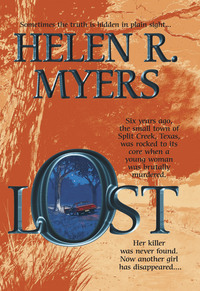
Полная версия
No Sanctuary

Exhaling in relief, Bay threw a load on her own welder. She began the bottom weld on her spear and was immediately lost in her work.
How long was it before she picked up on the change, the smell? Two minutes, three? It couldn’t have been much longer. In any case, the strong odor, wholly unnatural to their environment and so clearly wrong, prompted her to throw up her hood and sniff again.
She turned around.
Smoke was coming from Glenn’s table, so much smoke that she couldn’t see him. Nevertheless, the nauseating smell told her he was there. Swatting the hood off her head, she ran to his machine, flipped off the ignition switch and, while her reaction was fast, her movements automatic, her mind froze on one thought. Heart attack.
The horrible stench gagged her as much as the smoke did, speaking too clearly of burning clothing and worse. As horror urged retreat, she grabbed the lead to get the stringer out from beneath him, at the same time pushing against his shoulder to roll him off it. In that instant something struck her forearm.
Through tearing eyes and suffocating smoke she saw a metal rod—no, one of the Maiden’s lances.
The spear was impaled through Glenn’s back.
Also available from MIRA Books and HELEN R. MYERS
FINAL STAND
DEAD END
LOST
MORE THAN YOU KNOW
COME SUNDOWN
WHILE OTHERS SLEEP
No Sanctuary
Helen R. Myers

For Norma L. Wilkinson
Who has also known what it takes to stand alone.
AUTHOR’S NOTE
Like many, I grew up hearing the sage advice “Two things should never be discussed at the dinner table—politics and religion.” An adage, I should add, that was rarely heeded by those who taught it to me. Then my family moved south of the Mason-Dixon Line and, a few years after we were married, my husband and I settled in east Texas, a place, I have wryly concluded, where there are more churches than pine trees. As hard as I try, avoiding the subject of religion here is more difficult yet—in fact it’s virtually impossible. Salutations are typically followed by one of two questions: “What church do you belong to?” or “Who are your people?”
It is partly because of such troubling and inappropriate queries that this story evolved. My other inspiration came from actual crimes—two in particular. One to this day remains unproven, although I’m sure the U.S. Treasury Department continues to watch over it hoping for a break, and the other was brought to trial but failed to win a conviction. From there on, this is a work of fiction. To the best of my knowledge, Mission of Mercy Church does not exist in this area. But sadly, I have seen a few too many variations of it and of characters like Martin Davis and Madeleine Ridgeway. They present great fodder for a writer, but I despair for the innocent minds they abuse and corrupt.
ACKNOWLEDGMENTS
Several people need to be thanked for sharing their stories and expertise, or for going out of their way to try to arrange interviews—Darese Cotton, Karen Kelley and Linda Broday. To those of you who write in approval of my protagonists’ “real” professional backgrounds, I hope you’ll enjoy Bay and her work. All credit for its accuracy goes to my husband, Robert, a master craftsman and shaman with metal. Any error there and elsewhere is entirely my own.
The world is governed by very different personages from what is imagined by those who are not behind the scenes.
—Benjamin Disraeli
Contents
Prologue
Chapter 1
Chapter 2
Chapter 3
Chapter 4
Chapter 5
Chapter 6
Chapter 7
Chapter 8
Chapter 9
Chapter 10
Chapter 11
Chapter 12
Chapter 13
Chapter 14
Chapter 15
Chapter 16
Chapter 17
Chapter 18
Chapter 19
Chapter 20
Chapter 21
Chapter 22
Chapter 23
Chapter 24
Chapter 25
Chapter 26
Chapter 27
Chapter 28
Chapter 29
Chapter 30
Chapter 31
Chapter 32
Chapter 33
Chapter 34
Chapter 35
Chapter 36
Chapter 37
Chapter 38
Chapter 39
Chapter 40
Chapter 41
Chapter 42
Epilogue
Prologue
Tyler, Texas
August, 1995
It was well past nine, hours after their usual quitting time—more if the battery-operated clock above the office door had stuck again—and yet Bay Butler reached for another welding rod. With two more ornamental lances to tack then weld into the division bars, she could call her half of the entry gate completed, and she wasn’t shutting down until done. The gate had to be installed the day after tomorrow. It couldn’t matter that every muscle and bone in her back and neck screamed from fatigue, or that her eyes had been on fire since the rest of the crew had gone home for the day. Never mind that sweat saturated her long-sleeved denim shirt and jeans, threatening to slow-cook her to death. It was August, this was Texas, and only a bankruptcy-intent fool air-conditioned a welding shop.
At least her clothes were providing some protection from the red-hot sparks shooting at her. Denim was not ideal for such work, but allowed flexibility of movement that the leather vest wisdom dictated a welder use didn’t. Those contraptions felt as weighty as a warrior’s breastplate, the arms as stiff and restrictive as the pauldrons, rerebraces and couters of any good knight’s armor. The invention was also meant to guard against worse health problems down the road; however, thanks to her creditors, there would be no “down the road” for Bay if she couldn’t work with reasonable speed and flexibility. Which was also why she replaced her wardrobe every few months; none of which, her CPA chastised repeatedly, was deductible because her shop wasn’t union and denim didn’t qualify as a uniform.
Two more lances…
It might as well be six and she had to visualize something pleasant to keep going. Once she dragged her butt home, she would fill the tub with whatever the faucet marked C offered considering this was Tyler and triple-digit heat had been the status quo for thirty-eight days straight. A tray or three of ice cubes from the freezer would help, as would the quart of cold milk from the fridge that was a few days past its expiration date. Whole milk, which was why she rarely drank it, the kind that clung to skin like a pearl’s sheen. Then she would pop the tab on a tall Miller Lite to cool off her insides, and hopefully pass out from sheer exhaustion.
“Christ Almighty, will you knock it off, already?”
She paused in lowering the Darth Vader-like hood over her face and glanced behind her to see Glenn English glaring from beneath his own raised hood. Behind him on the rolling parts table were five other ten-foot tall iron rods with the sharp arrowheads that would finish his side of the entry gate. It wasn’t like him to be so far behind her, and he knew what was at stake. But as she accepted she might have to forgo the soak, maybe even the beer, she shouted back over the motors, “Go ahead and quit if you need to. I’ll finish for you.”
She made sure her tone was matter-of-fact; after all, he had someone waiting for him. Maybe Holly had committed them to an engagement and he’d neglected to share that tidbit of information. It wouldn’t be the first time, and who could blame Holly for deciding that tonight she’d eaten one too many dinners alone, received one last-minute excuse beyond what a fiancée should endure?
“You’d like me to walk out on you, wouldn’t you? A perfect ending to the martyr image.”
Dumbfounded, Bay could only stare. She loved her work. What they were doing was hot and dirty for sure; but the opportunity it represented was a challenge, and a terrific business opportunity. Whatever his problem, she was willing to shrug it off to fatigue and the god-awful heat. Everyone in the shop had been snarling at each other on and off for weeks, thanks to the weather and the company’s money crunch.
“We only have tomorrow to finish up,” she said, drawing on the last of her own patience. “If this project doesn’t go in on Friday morning, you won’t have to worry about more overtime. We’ll have to shut those doors for good.”
It wasn’t an exaggeration since they had yet to begin the painting-finishing process. The gate would be a navy gray, two careful coats of top-grade, weather-resistant flat—a third if, upon final inspection, Bay decided it was warranted. When that was completely dry, they would begin the painstaking hammering of the yellow brass wire wrapped in three strategic points along the length of each lance. She called the design The Iron Maiden, a little tongue-in-cheek acknowledgment after one of Glenn’s remarks about her “ball-breaker” work habits and her dogged determination to keep the shop afloat. As luck would have it a few weeks ago, the grand duchess of all ball-breakers had driven by the small sidewalk-size version of the Maiden exhibited outside and stopped. On the spot, Madeleine Ridgeway had demanded a driveway size model for her new estate. Nobody turned down Mrs. Herman Ridgeway, daughter and sole heiress to Duncan Holt’s vast grocery warehousing empire.
“Friday,” Bay said to Glenn with more emphasis. “And don’t forget Mrs. R. needs access for the caterers and florists by early afternoon. That’ll create a squeeze for us no matter how smoothly things go. What if Zamora shows up in the morning with the shakes, or the paint runs, or the wire snaps too often as we’re hammering the trim?”
“Shit happens.”
“Not when she signs the check.”
“So she doesn’t get her frigging gate in time for her party. You don’t think the house is enough to keep everybody gaping?”
The answer to that was so obvious it didn’t need to be voiced. Nevertheless, Bay wanted people to see The Iron Maiden first.
As a hunch about Glenn settled deeper in her gut, she frowned. This wasn’t about their intense schedule, at least not entirely. Something else was wrong. He’d been as thrilled as she was when they’d landed this job and they’d hugged and cheered, despite it coming only a few weeks after Bay turned down his marriage proposal. She’d thought, hoped, they’d cleared the air since. He’d certainly started up with Holly fast enough. Could there now be trouble in that paradise?
Heaven spare me from love.
They had to hang on. Once their financial pressures were behind them, they could think about expansion, a future that would allow for larger projects, independence. Dreams. The end of what she privately saw as a two-year leeching of everything creative inside her. She couldn’t let him fall apart one check away from freedom and inspiration.
“I can’t and won’t do that to Mrs. Ridgeway,” Bay told him.
“You think she wouldn’t cut you loose in a heartbeat if it suited her?”
Glenn’s cynicism worked like hot salsa on her empty stomach. If this abrasive attitude was his way to complete his emotional “disconnect” from her, to assure her that he’d learned his lesson, he needed to rethink his strategy.
“Look, I’m not a mind reader, and if you have something to say, I wish you’d can the sarcasm and get to the point…only not tonight. I’m begging you, Glenn. Let’s get this job done.”
He stood for several more seconds as though he wanted to press a point, but as abruptly as he’d flared, he reached for another lance from the rolling table behind him, slid it in place and dropped his hood. Striking an arc, he began welding again.
Exhaling in relief, Bay threw a load on her own welder. She began the bottom weld on her lance and was immediately lost in her work.
How long was it before she picked up on the change…the smell? Two minutes. Three?
It couldn’t have been much longer. In any case, the strong odor, wholly unnatural to their environment and so clearly wrong prompted her to throw up her hood and sniff again.
She turned around. “Jesus.”
Smoke was coming from Glenn’s table, so much smoke that she couldn’t see him. Nevertheless, the nauseating smell told her he was there. Swatting the hood off her head, she ran to his machine, flipped off the ignition switch and scrambled over lines to reach him. While her reaction was fact, her movements automatic, her mind froze on one thought. Heart attack. The stench gagged her as much as the smoke did, speaking too clearly of burning clothing and worse. As horror urged retreat, she grabbed the lead to get the stinger out from beneath him, at the same time pushing against his shoulder to roll him off it. In that instant something struck her forearm.
Through tearing eyes and suffocating smoke, she saw a metal rod—no, one of the Maiden’s lances.
The spear was impaled through Glenn’s back.
1
Six years later
Gatesville Unit, Texas Department of Corrections
Gatesville, Texas
Wednesday, May 9, 2001
“Butler! Shut it down, you have a visitor.”
About to drop her hood to weld the rest of a handrail, Bay Butler hesitated and glanced over at Sergeant Draper scowling at her from the doorway. At first she thought she must be hearing things, then the woman squeezed into a size-sixteen prison guard uniform aimed her baton. Bay shut down the machine.
What the hell…?
She couldn’t imagine who wanted to see her. She had no family, so-called friends had abandoned her ages ago, and the most rabid reporter had long lost interest in her. Nevertheless, she knew better than to question when a prison guard gave a directive, particularly this one. Bay got along well enough with most of the staff—they left her alone, while she pretended they were part of the concrete and steel surrounding her—but Draper had made it clear from day one that she thought Bay belonged on Death Row.
Setting her hood on top of the welding machine, Bay approached the woman whose face would make a plastic surgeon think, “Windfall.” Keeping her own expression passive, she dealt with an unwelcome rush of adrenaline. Why hope? Hope, she’d learned the hard way, was for babies, brides and fools. Yet Draper knew something. Suspicion and trouble were unpleasant scents to season Bay’s memory as she struggled to remember what she might have done wrong in the last six days, never mind six years. It had to be a trick of some kind; no one on the outside cared whether she lived or rotted here and she had no assets, therefore, no need for a beneficiary to encourage her early demise. Her life had been reduced to its lowest common denominator.
Six years…in another six weeks. Any more sixes, she mused, and she was going to start wondering if the Bible-thumpers—whom she avoided as diligently as she did prison troublemakers—were right about the antichrist already being present on earth. That, too, said bad things about her state of mind.
Wary, Bay followed the surly guard’s directives down the hall. She knew better than to ask questions. As far as Draper was concerned, if you were at Gatesville, you were guilty and should serve your full term, and the guard did her best to make sure Bay understood that went doubly for her.
The cloudless Texas sky blinded Bay as she crossed the prison yard, and the packed clay tested her bones and joints as much as the concrete floors of the prison did. Gatesville was the state’s main women’s facility, located about an hour west of Waco, hard country that fooled you. Gently rolling terrain let you believe over the next slope was a lake, a stream, maybe an oasis of woods when the only break from the incessant sun was the scrub brush and rain-starved cedars. For as far as she could see the dusty, heat-scorched vegetation littered the land like storm debris. Bay never yearned for the soothing shade of the piney woods more than when she was ordered outside to fulfill state requirements for “fresh air and exercise.”
The plant-bare yard was speckled with a number of women cloistered in a corner like chickens without feed and unionizing in protest. Several called to her, whistled and blew taunting kisses. Bay had a certain reputation among the inmates, not for any unpredictability or violent tendencies, but for her refusal to make group alliances. It wasn’t a focused intent, she simply wasn’t and never had been tribal, didn’t join clubs and other variations of so-called support groups as a means of feeling secure. An only child raised in what any first-year psych student would recognize as an unorthodox manner, her social skills weren’t only untapped, they remained buried rootstock, or worse, like invisible seeds on Mars.
Unfortunately for her, Bay resembled the very people who came from various ministries to attend to the needs of her soul. Slim to the point of gaunt, having saved her sanity by plunging herself in relentless work, she was as pale as a chronic anemic. What color she did have was welding burns. Add her artist’s feverish, unblinking stare and she could pass for a seer, or someone in need of a white jacket with sleeves that tied, which explained why all but the most fearless inmates avoided her, as one would any unknown commodity. It was those predators, the ones who traveled in the strongest packs that refused to be permanently thwarted. Bay carried a few scars from them—the chronic ache of cracked ribs, a broken finger and damaged spleen.
It was her skill with metal that had kept her alive, that and the fact that the new warden, after a visit to the infirmary, had done her homework. Upon reading Bay’s file, the woman assigned her to the prison mechanic shop. Ever since, Bay worked at repaying her by methodically cutting down on the list of repairs and improvements needed at the facility, those frequently put off due to budget constraints. The move hadn’t stopped the diehards from their taunts, though. As she crossed the yard they stuttered, “B-b-b,” or called, “Hey, Baby Butt Butler!” or “Yo! Bitch Bonnie Bay.” But, as always, unless someone addressed her as “Bay” or “Butler,” she tuned them out.
After the debilitating heat it was a relief to enter the visitors building, although the air-conditioning sounded as though it was ready to go at any second. Either that or souls from previous inmates were haunting the ventilation system. Still, it was a good twenty degrees cooler than outside, almost thirty better than at the shop. But what caused Bay to shiver was the reminder that she hadn’t been in here since her first month at Gatesville and that she’d forgotten procedure. Hesitating once too often after a directive earned her Draper’s scorn.
“Hell, Butler, has inhaling those gas fumes numbed your brain?” the guard snapped as they stood outside the last set of gates. “I said pass through.”
Bay intended to…but she’d spotted whom she was being handed off to, a great hulk of flesh with a face that made Draper a beauty queen. Would he insist on a body search, too, before she was allowed to see if any of this was worth it?
Bay clenched her teeth and stepped into the cell-like corridor. Then she stood staring through the bars at the door of mystery while the WWF reject attempted to get his jollies, only to discover he was wasting his time, since she was flat going and coming.
Muttering in disappointment or disgust, he directed her to the visitation room. “Cubicle six,” he recited in a voice that Disney Studios might contract to play a drowning grouper. “Stay seated, use the phones, no passing anything over the partition. No body contact whatsoever. Any infraction and the meeting’s over. You give me any lip and the meeting’s over. You try something stupid and you go into Solitary. Clear?”
“Yes, sir.” Bay’s automatic reply hid her consternation. Sixth cubicle. Six-six-six.
Her trepidation didn’t ease once she arrived at the designated spot. Not only was the man waiting for her a total stranger, he had all of the markings of a lawyer, the successful kind. She took in the educated, pampered face, the manicured hands, the salon-styled, flaxen hair and the suit she figured cost more than her court-appointed attorney had made handling her entire case, and considered doing an about-face. What stopped her were his eyes. He resented being here as much as she did the prospect of having to speak to him.
As curiosity won out over pride, she sat down and matched him stare for stare. What helped was that he was as fine-boned as he was fair—her male counterpart. He picked up his phone, then waited for her to reach for hers. That’s when she noticed the condition of her hands—black from grease and dirt. Certain that he’d noticed, she took her time to wipe them on her thighs, further staining the already soiled orange jumpsuit.
“I’m Lyle Gessler,” he snapped as soon as she brought the receiver against her left ear. “Mrs. Ridge-way sent me.”
All reluctance and embarrassment evaporated like summer drizzle on sun-baked Texas earth. If the name Ridgeway had clout in this state, it had double that with her. One thing she believed—the widow of oil tycoon Herman Ridgeway and daughter and sole heiress of the late grocery-distributor magnate Duncan Holt was the only reason she didn’t call Death Row home. For Madeleine Ridgeway, she would listen.
“As you know, Mrs. Ridgeway has continued to protest your situation.”
Continued? “She was supportive before and during the trial. But since…I couldn’t say.”
Mrs. Ridgeway had sent a note right after her arrest saying she would be following the trial and offer herself as a character witness for the defense, but Bay had refused for fear of public opinion turning on the good woman. Later she’d learned from her lawyer, court-appointed Mary Dish, that Mrs. Ridgeway had spoken to some influential political friends who had somehow convinced the D.A. that while a conviction was likely, a Murder One charge would be risky. For that, if nothing else, Bay would always be grateful.
“Then allow me to enlighten you. After saving you from a date with the Lethal Injection Boys, she expanded her own investigation—and at no small expense. It’s a result of that, the evidence we’ve unearthed, that I’m here. Your conviction has been vacated.”
Bay struggled to figure out what the hell that meant without looking like a fresh-hatched chick. She was sensitive about her lack of formal education. Schooling she had, having gone through the whole welding school apprenticeship and being mentored by some of the best journeymen in the business. But the rest of it, the college-range curriculum had been denied her. She’d used some of her time here trying to catch up, improving her reading skills and sense of history and politics, anything to fill the endless days; however, the sense of stigma remained.
“I don’t understand,” she admitted at last.
“We convinced the D.A. to agree with your defense attorney and request that your trial be set aside.”
He might as well have announced her the winner of a jackpot lottery. “How?” she whispered, surprised she could speak at all. She’d had a full trial, the whole gamut of legalities and jury and media humiliation.
“What does it matter? The point is you’re getting out.”












